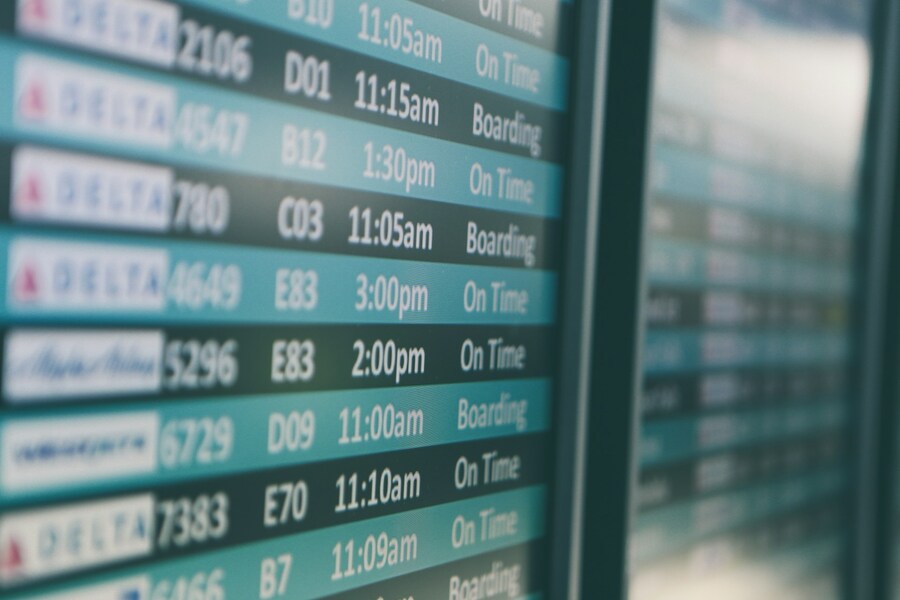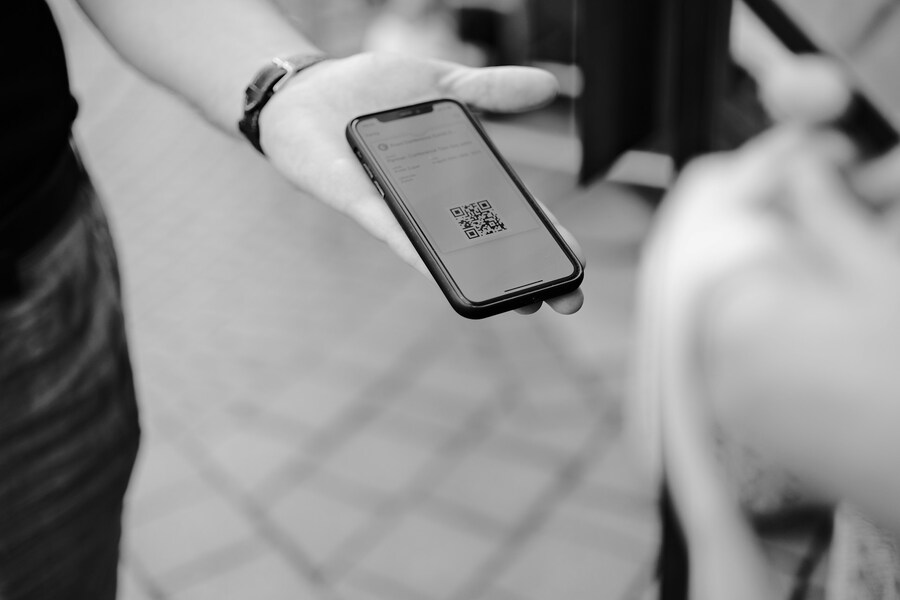The landscape of air travel, perpetually subject to the whims of weather, air traffic control, and mechanical issues, has underscored an essential truth for every passenger: knowing your rights is paramount. In an era where disruptions feel increasingly common, preparing to fly now involves more than just packing a suitcase; it requires a firm grasp of when and how an airline owes you compensation, particularly a cash refund. The U.S. Department of Transportation (DOT) provides the bedrock for these protections, which apply universally to domestic flights, as well as international journeys commencing or concluding within the United States. Navigating the nuances of these regulations can transform a frustrating travel setback into a manageable financial recovery. Understanding the precise circumstances that trigger an airline's obligation to refund is the first, most critical step in safeguarding your travel investment. So, let's dive in!
When an airline cancels your trip, how can you guarantee a full cash refund instead of just an inconvenient rebooking?
Know your refund rights
.jpg)
The cornerstone of the DOT flight refund policy is simple: if a flight is canceled or a significant schedule change is made, and the passenger ultimately chooses not to accept rebooking and forgo the travel entirely, a full refund is due. This is a crucial distinction. The airline may offer to put you on the next available flight or one the following day. However, if you decline this reaccommodation, the airline is legally bound to provide a refund for the ticket's unused segment. This protection remains in force regardless of whether the disruption stemmed from the airline's direct operational issues or external forces entirely beyond their control, such as a severe weather event. This is why it's so vital for passengers to clearly communicate their intent to the carrier when faced with a cancellation – opting for a refund over a rebooking.
For instance?
The key concept here is that the refund entitlement is triggered by the service failure and your decision to opt out of the trip, or part of it, with that airline. Consider a multi-city itinerary. If the first leg is delayed significantly, making you miss a critical connection, and you decide the entire trip is now unfeasible, you can request a refund for all unused segments. The complexity often arises when passengers passively accept a rebooking, even if it's inconvenient. If you agree to fly on the rescheduled flight, even if it's hours or a day later, the airline has fulfilled its carriage obligation, and the refund entitlement is generally nullified. Therefore, passengers must be proactive in stating their preference for a cash refund immediately upon notification of a cancellation or major schedule change if they don't wish to be rebooked.
Refund policies kick in only if you decide not to fly
This point cannot be overstated: the official federal policy dictates that a refund is owed only when you, the passenger, elect not to travel following a substantial flight alteration. If the airline cancels your 7 a.m. departure and automatically places you on their 1 p.m. flight, and you proceed to fly on that 1 p.m. flight, you have effectively accepted the modified contract of carriage. In this scenario, the airline has successfully rebooked you, and no refund for the initial ticket price is mandated, though you may still be entitled to certain care obligations (like meals) depending on the airline's specific contract of carriage or the nature of the delay. The moment you choose to accept the alternative travel arrangement, you waive your automatic right to a full cash reimbursement of the original ticket price.
Did the government just tighten the rules?

Recent legislative movements and regulatory shifts have undeniably strengthened consumer protections concerning air travel refunds. While the core principle of a refund for a canceled flight if you choose not to travel has long existed, newer rules emphasize automation, clarity, and speed. The federal government has moved to ensure that passengers are no longer forced to engage in protracted battles with airlines to claim the money they are legally owed. These changes mandate that carriers must clearly and automatically notify passengers of their right to a refund when a disruption occurs. Most importantly, when a passenger decides not to fly and opts for a refund, the carrier must process this request promptly and without requiring the customer to actively "fight" for their money.
How quickly can I expect airline refunds?
Promptness is now a key metric of compliance. Federal regulations specify a clear timetable for the disbursement of owed refunds. For tickets purchased using a credit card, the airline is legally required to issue the refund within a stringent 7 business days of receiving a complete refund request from the passenger. If the ticket was paid for using a different method – such as cash, check, or bank transfer – the window extends slightly, requiring the airline to provide the refund within 20 days. This is a significant enhancement to passenger protection, setting a clear and enforceable expectation for how quickly travelers can recoup their funds following a cancellation or significant delay.
Am I entitled to a refund for a delayed flight?

Source: Matthew Smith/Unsplash
Yes, the DOT refund rules extend beyond outright cancellations and apply equally to flights that are significantly delayed or that undergo a significant schedule change. Just as with a cancellation, the airline must offer a refund for the unused portion of the ticket if the significant delay or schedule change prompts the passenger to decide they no longer wish to travel. Again, this is not an automatic payment for inconvenience; it's a full refund of the ticket price for the segment of the journey you choose to abandon due to the change in service. This distinction prevents airlines from avoiding refunds by merely re-designating a canceled flight as a severely delayed one.
What is considered a 'major' delay?
Recent legislative refinements have worked to establish a clearer, more concrete definition of what constitutes a "significant" change or delay, removing much of the ambiguity previously exploited by airlines. For a domestic flight – meaning travel entirely within the United States – a significant delay is officially defined as one that results in the flight arriving at its destination at least 3 hours late. For international flights, the threshold for a significant delay is set higher, at an arrival that's at least 6 hours late. When a delay meets or exceeds these defined benchmarks, the passenger is then empowered with the choice to either accept the delayed service or decline to travel and request the mandated cash refund for that portion of the itinerary.
What if the airline offers a voucher instead of cash?

Airlines are entirely permitted to offer travelers alternative forms of compensation, such as a travel voucher, credit for future travel, or frequent flyer miles, in place of a cash refund. However, a critical consumer protection rule dictates that any passenger who's legally entitled to a cash refund doesn't have to accept a voucher or credit. They retain the right to insist on their money back. New DOT regulations require airlines that offer a voucher as an alternative to clearly and explicitly inform the passenger that they are, in fact, due a cash refund if that's their preference. This aims to prevent airlines from misleading passengers into accepting less flexible or less valuable compensation than what they are owed by law.
Are frequent flyer miles better than a cash refund?
The choice between a cash refund and frequent flyer miles or other compensation should be approached with caution and a sharp pencil. While miles can sometimes offer exceptional value, especially for premium travel, the value isn't guaranteed and often fluctuates. Travelers should consult reliable, independent valuations of the airline's loyalty currency to determine if the mileage offer genuinely exceeds the value of the cash refund. For example, if a $300 ticket is canceled and the airline offers 15,000 miles, but those miles are independently valued at only $225, accepting the cash refund is the financially prudent choice. Moreover, miles are subject to expiration, sudden devaluation by the airline and may be restricted by blackout dates, whereas a cash refund is a guaranteed, liquid asset. A good rule of thumb is to take the cash unless the offer in miles is significantly more valuable than the fare paid.
What about getting money for meals, hotels, and transport?

Compensation for incidental, out-of-pocket expenses – such as unexpected hotel stays, meals, or ground transportation costs like an Uber or taxi – falls into a separate category from the federal refund requirement for the unused ticket. These forms of compensation are generally governed by the individual airline's Customer Service Plan or Contract of Carriage, not the mandatory DOT refund policy. While many airlines voluntarily commit to providing meal vouchers, hotel accommodation, and ground transport in the event of an overnight delay or cancellation, there are 2 key variables to understand. First, these forms of compensation are often discretionary; airlines don't have a universal federal mandate to provide them. Second, and most importantly, they often depend on the cause of the disruption. If the delay is deemed to be the airline's fault (e.g., mechanical or staffing issues), compensation is more likely. If the disruption is caused by "uncontrollable" factors (e.g., severe weather or a national security issue), the airline often absolves itself of the financial responsibility for these ancillary costs. This is where having a credit card with built-in travel insurance or a separate travel insurance policy becomes an invaluable financial safety net.
Travelers often find themselves having to scramble to re-book flights or secure accommodation, sometimes incurring substantial unexpected costs. This unexpected complication also extends to the logistics of getting to and from the airport. Savvy travelers look to streamline their pre-flight experience, recognizing that the initial part of their journey should be as stress-free as possible. This is where services like ParkingNearAirports.io provide a valuable assist. By offering pre-booking options for off-site airport parking, travelers can secure cheaper airport parking rates and avoid the stress of searching for a spot at the terminal. They often provide features like free shuttles, secure facilities, and an easy booking process that can be further sweetened with an airport parking promo code. For those taking a quick domestic trip, securing domestic airport parking through such a service can be a significant cost-saver, offsetting some of the small, unavoidable travel expenses that can accumulate even before a disruption occurs.
Did the Biden administration suggest compensation?
While the current federal regulations focus on refunds for the ticket's unused portion, there have been significant proposals aimed at establishing mandatory compensation for the costs associated with delays and cancellations. The Biden administration, for instance, had strongly proposed new rules that would require airlines to guarantee compensation – specifically for meals, hotel accommodations, and ground transportation – whenever a travel disruption was directly attributable to the airline's fault. Although these specific, more expansive compensation rules hadn't been fully enacted into law, the spirit of consumer protection has clearly influenced the current regulatory environment, pushing airlines to be more transparent and prompt with the refunds they already owe. This continuous regulatory evolution suggests that further passenger protections, including concrete, required compensation for delays, may remain an active topic in the ongoing discussion surrounding air travel governance.
The bottom line

The core of airline refund policy is simple: you are legally owed a full cash refund for any unused ticket segment if your flight is canceled or significantly delayed (3 hours domestic/6 hours international) and you choose not to travel. This right stands regardless of the cause.
Refunds must be issued promptly – within 7 business days for credit card payments. Remember that you can always insist on cash instead of a voucher. Compensation for meals and hotels remains generally discretionary, based on the airline's fault and policy. Know your rights to turn a disruption into a manageable inconvenience.
May all your future journeys be smooth and hassle-free!






